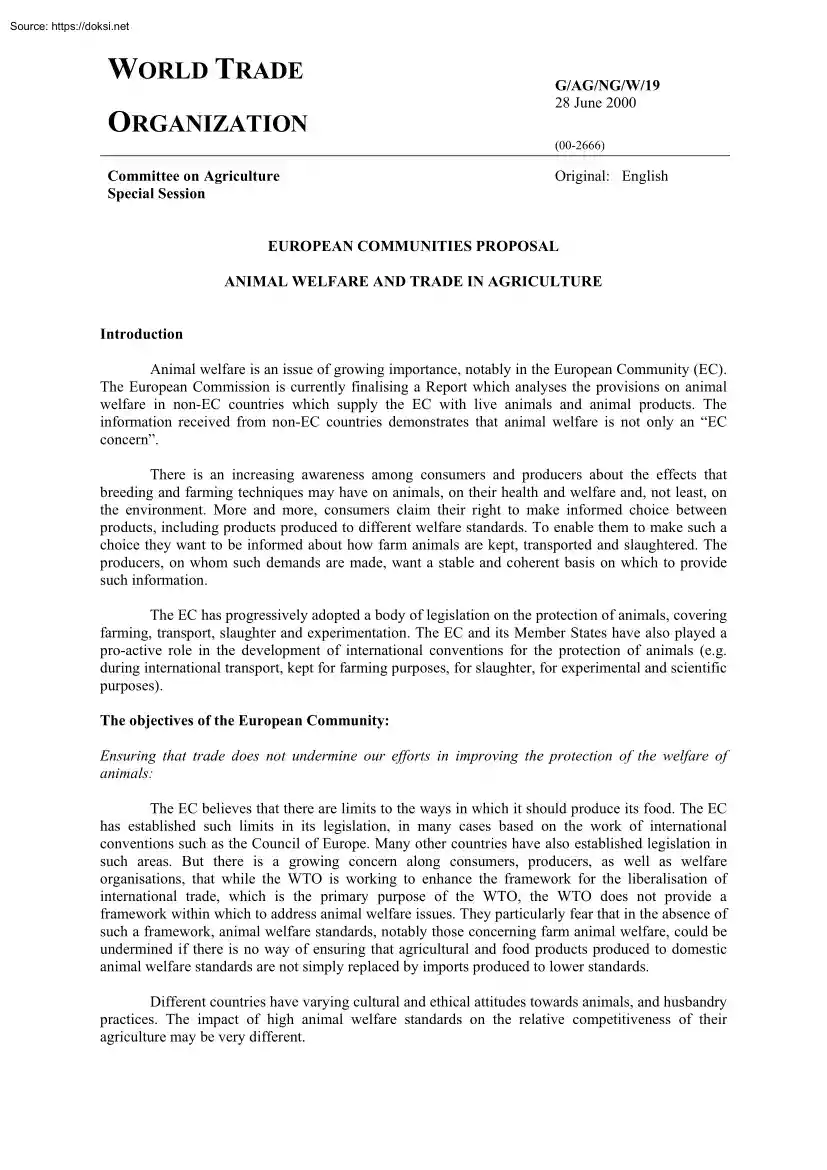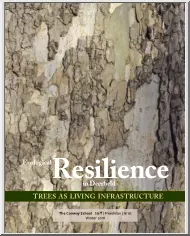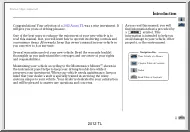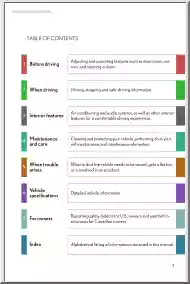Please log in to read this in our online viewer!

Please log in to read this in our online viewer!
No comments yet. You can be the first!
What did others read after this?
Content extract
WORLD TRADE ORGANIZATION Committee on Agriculture Special Session G/AG/NG/W/19 28 June 2000 (00-2666) Original: English EUROPEAN COMMUNITIES PROPOSAL ANIMAL WELFARE AND TRADE IN AGRICULTURE Introduction Animal welfare is an issue of growing importance, notably in the European Community (EC). The European Commission is currently finalising a Report which analyses the provisions on animal welfare in non-EC countries which supply the EC with live animals and animal products. The information received from non-EC countries demonstrates that animal welfare is not only an “EC concern”. There is an increasing awareness among consumers and producers about the effects that breeding and farming techniques may have on animals, on their health and welfare and, not least, on the environment. More and more, consumers claim their right to make informed choice between products, including products produced to different welfare standards. To enable them to make such a choice they want to be
informed about how farm animals are kept, transported and slaughtered. The producers, on whom such demands are made, want a stable and coherent basis on which to provide such information. The EC has progressively adopted a body of legislation on the protection of animals, covering farming, transport, slaughter and experimentation. The EC and its Member States have also played a pro-active role in the development of international conventions for the protection of animals (e.g during international transport, kept for farming purposes, for slaughter, for experimental and scientific purposes). The objectives of the European Community: Ensuring that trade does not undermine our efforts in improving the protection of the welfare of animals: The EC believes that there are limits to the ways in which it should produce its food. The EC has established such limits in its legislation, in many cases based on the work of international conventions such as the Council of Europe. Many other countries
have also established legislation in such areas. But there is a growing concern along consumers, producers, as well as welfare organisations, that while the WTO is working to enhance the framework for the liberalisation of international trade, which is the primary purpose of the WTO, the WTO does not provide a framework within which to address animal welfare issues. They particularly fear that in the absence of such a framework, animal welfare standards, notably those concerning farm animal welfare, could be undermined if there is no way of ensuring that agricultural and food products produced to domestic animal welfare standards are not simply replaced by imports produced to lower standards. Different countries have varying cultural and ethical attitudes towards animals, and husbandry practices. The impact of high animal welfare standards on the relative competitiveness of their agriculture may be very different. G/AG/NG/W/19 Page 2 As a consequence, when a country provides for
animal welfare standards that go beyond those applied by other trading partners, this can have a number of effects. Consumers may not be provided with coherent information on the welfare standards to which imported products are produced, and domestic producers may be economically disadvantaged. This is why the EC believes that there is a genuine need to discuss animal welfare in the WTO context. The questions are real, whether from consumers or producers, and the WTO, as the leading international trade organisation, must be ready to address these questions. Given the interrelationship between animal welfare measures and international trade in agriculture and food products of animal origin, the EC considers that this issue must be addressed in the negotiations on agriculture within the framework of Article 20, while not excluding that animal welfare should be considered under other aspects of the WTO. Avoiding trade protectionism: The objective of the EC in raising animal welfare issues
in the context of the WTO negotiations is not to provide a basis for the introduction of new types of non-tariff barriers. The European Community has been and is often strongly criticised for referring to animal welfare. The EC is accused of hidden protectionism, and yet the EC no more applies its domestic animal welfare rules to imports from other WTO Members than other WTO Members. Where the EC has openly taken a different stance, is in drawing attention to the need to address the question of animal welfare within the WTO. The EC is the world’s second largest exporter of agriculture and food products, and the EC has no interest in allowing WTO members to adopt unjustified non-trade barriers. Our objective is to promote high animal welfare standards, to provide clear information to consumers, while at the same time maintaining the competitiveness of the EC farming sector and food industry. Some of our competitors argue that the EC is trying to have established in the WTO provisions
that could allow WTO members to refuse imports of animals and animal products from countries which did not apply the same welfare legislation as they do. Such an approach could end up dividing the world into different trading blocks, with exporters matching their animal welfare legislation to that of their principal import markets, and possibly some importers adopting high animal welfare standards for protectionist reasons. This is not what we are aiming at, as this would not further animal welfare. Equally, the EC does not want to turn back or neglect the need to use trade to improve world prosperity, in particular the prosperity of the least developed countries. The EC is the world’s biggest importer of agricultural products, from a vast range of countries, including many developing and least developed countries. We fully recognise the role of trade in helping to raise human living standards in developing countries. We only want to ensure that the process of liberalising world
trade supports what we are building in the EC about the protection of animals. In practice, our concerns with animal welfare are most acute in relation to highly-intensive and industrialised production methods for certain species, in particular poultry and pigs. This type of production is most often found in developed rather than developing and least developed countries. Several ways of addressing the issue in the WTO framework: The issue of animal welfare is a complex issue, which is at the crossroads of economic, ethical, animal health, public health, food production and legal issues. It is evident that the importance attached to animal welfare varies amongst WTO members. Nevertheless, the fact that animal welfare G/AG/NG/W/19 Page 3 is an emerging trade issue has been recently acknowledged by the OECD, and the international conventions already in place and ongoing work within the Organisation des Epizooties confirm this. We fully recognise the complexity of this issue, and the
fact that each WTO member has the right to choose its own animals welfare measures adapted to their own circumstances. Nevertheless, the impact of trade liberalisation on animal welfare, in particular the welfare of farm animals and the transport of live animals, cannot be denied. WTO members should not hamper trade in agriculture and food products because of animal welfare. But equally, it is important to secure the right of those WTO members that apply high animal welfare standards to maintain them. The existing WTO Agreements (Agreement on the application of Sanitary and Phytosanitary measures, the Agreement on Technical Barriers to Trade, and Article XX of GATT, as well as Article 20 of the Agreement on Agriculture) already provide a basis on which some of the issues related to animal welfare can be discussed. However, we are of the view that animal welfare should be globally addressed in a consistent manner within the WTO. The debate in recent times has shown very clearly the need
to establish common ground and understanding on this important issue. That is why the EC wishes to raise animal welfare as an important non-trade concern in the current negotiations. There are a number of ways in which animal welfare could be addressed. These are not mutually exclusive, and an outcome could be envisaged which encompasses a combination of a number of actions. These include: • the development of multilateral agreements dealing with the protection of animal welfare. This approach would be facilitated by the achievement of greater legal clarity on the relationship between WTO rules and trade measures taken pursuant to provisions of multilateral animal welfare agreements; • appropriate labelling, compulsory or voluntary, as provided for under Article 2.2 of the TBT Agreement, could facilitate the wish of consumers to make an informed choice as regards food products, whether domestically produced or imported, including as regards the production conditions, e.g
products produced in compliance with certain animal welfare standards; • high animal welfare standards can increase costs to producers over and above any possible increased returns from the market. Trade liberalisation can exacerbate this effect and lead to unequal conditions of competition, and even to drive down welfare standards in exporting countries. This could fuel opposition to trade liberalisation and the WTO It may therefore be necessary to consider whether it would be legitimate to provide for some sort of compensation to contribute to the additional costs where it can be clearly shown that these additional costs stem directly from the higher standards in question. For any such compensation to be acceptable, it would have to have no or at most minimal effects on trade and production. To conclude, the EC believes that detailed examination of the approaches set out above would allow WTO members to develop an approach to address adequately the issue of animal welfare within
the WTO, without conflicting with the long-term objective of trade liberalisation in agricultural and food products. The EC’s work on animal welfare is continuing, and the EC reserves its right to make further submissions in the light of developments
informed about how farm animals are kept, transported and slaughtered. The producers, on whom such demands are made, want a stable and coherent basis on which to provide such information. The EC has progressively adopted a body of legislation on the protection of animals, covering farming, transport, slaughter and experimentation. The EC and its Member States have also played a pro-active role in the development of international conventions for the protection of animals (e.g during international transport, kept for farming purposes, for slaughter, for experimental and scientific purposes). The objectives of the European Community: Ensuring that trade does not undermine our efforts in improving the protection of the welfare of animals: The EC believes that there are limits to the ways in which it should produce its food. The EC has established such limits in its legislation, in many cases based on the work of international conventions such as the Council of Europe. Many other countries
have also established legislation in such areas. But there is a growing concern along consumers, producers, as well as welfare organisations, that while the WTO is working to enhance the framework for the liberalisation of international trade, which is the primary purpose of the WTO, the WTO does not provide a framework within which to address animal welfare issues. They particularly fear that in the absence of such a framework, animal welfare standards, notably those concerning farm animal welfare, could be undermined if there is no way of ensuring that agricultural and food products produced to domestic animal welfare standards are not simply replaced by imports produced to lower standards. Different countries have varying cultural and ethical attitudes towards animals, and husbandry practices. The impact of high animal welfare standards on the relative competitiveness of their agriculture may be very different. G/AG/NG/W/19 Page 2 As a consequence, when a country provides for
animal welfare standards that go beyond those applied by other trading partners, this can have a number of effects. Consumers may not be provided with coherent information on the welfare standards to which imported products are produced, and domestic producers may be economically disadvantaged. This is why the EC believes that there is a genuine need to discuss animal welfare in the WTO context. The questions are real, whether from consumers or producers, and the WTO, as the leading international trade organisation, must be ready to address these questions. Given the interrelationship between animal welfare measures and international trade in agriculture and food products of animal origin, the EC considers that this issue must be addressed in the negotiations on agriculture within the framework of Article 20, while not excluding that animal welfare should be considered under other aspects of the WTO. Avoiding trade protectionism: The objective of the EC in raising animal welfare issues
in the context of the WTO negotiations is not to provide a basis for the introduction of new types of non-tariff barriers. The European Community has been and is often strongly criticised for referring to animal welfare. The EC is accused of hidden protectionism, and yet the EC no more applies its domestic animal welfare rules to imports from other WTO Members than other WTO Members. Where the EC has openly taken a different stance, is in drawing attention to the need to address the question of animal welfare within the WTO. The EC is the world’s second largest exporter of agriculture and food products, and the EC has no interest in allowing WTO members to adopt unjustified non-trade barriers. Our objective is to promote high animal welfare standards, to provide clear information to consumers, while at the same time maintaining the competitiveness of the EC farming sector and food industry. Some of our competitors argue that the EC is trying to have established in the WTO provisions
that could allow WTO members to refuse imports of animals and animal products from countries which did not apply the same welfare legislation as they do. Such an approach could end up dividing the world into different trading blocks, with exporters matching their animal welfare legislation to that of their principal import markets, and possibly some importers adopting high animal welfare standards for protectionist reasons. This is not what we are aiming at, as this would not further animal welfare. Equally, the EC does not want to turn back or neglect the need to use trade to improve world prosperity, in particular the prosperity of the least developed countries. The EC is the world’s biggest importer of agricultural products, from a vast range of countries, including many developing and least developed countries. We fully recognise the role of trade in helping to raise human living standards in developing countries. We only want to ensure that the process of liberalising world
trade supports what we are building in the EC about the protection of animals. In practice, our concerns with animal welfare are most acute in relation to highly-intensive and industrialised production methods for certain species, in particular poultry and pigs. This type of production is most often found in developed rather than developing and least developed countries. Several ways of addressing the issue in the WTO framework: The issue of animal welfare is a complex issue, which is at the crossroads of economic, ethical, animal health, public health, food production and legal issues. It is evident that the importance attached to animal welfare varies amongst WTO members. Nevertheless, the fact that animal welfare G/AG/NG/W/19 Page 3 is an emerging trade issue has been recently acknowledged by the OECD, and the international conventions already in place and ongoing work within the Organisation des Epizooties confirm this. We fully recognise the complexity of this issue, and the
fact that each WTO member has the right to choose its own animals welfare measures adapted to their own circumstances. Nevertheless, the impact of trade liberalisation on animal welfare, in particular the welfare of farm animals and the transport of live animals, cannot be denied. WTO members should not hamper trade in agriculture and food products because of animal welfare. But equally, it is important to secure the right of those WTO members that apply high animal welfare standards to maintain them. The existing WTO Agreements (Agreement on the application of Sanitary and Phytosanitary measures, the Agreement on Technical Barriers to Trade, and Article XX of GATT, as well as Article 20 of the Agreement on Agriculture) already provide a basis on which some of the issues related to animal welfare can be discussed. However, we are of the view that animal welfare should be globally addressed in a consistent manner within the WTO. The debate in recent times has shown very clearly the need
to establish common ground and understanding on this important issue. That is why the EC wishes to raise animal welfare as an important non-trade concern in the current negotiations. There are a number of ways in which animal welfare could be addressed. These are not mutually exclusive, and an outcome could be envisaged which encompasses a combination of a number of actions. These include: • the development of multilateral agreements dealing with the protection of animal welfare. This approach would be facilitated by the achievement of greater legal clarity on the relationship between WTO rules and trade measures taken pursuant to provisions of multilateral animal welfare agreements; • appropriate labelling, compulsory or voluntary, as provided for under Article 2.2 of the TBT Agreement, could facilitate the wish of consumers to make an informed choice as regards food products, whether domestically produced or imported, including as regards the production conditions, e.g
products produced in compliance with certain animal welfare standards; • high animal welfare standards can increase costs to producers over and above any possible increased returns from the market. Trade liberalisation can exacerbate this effect and lead to unequal conditions of competition, and even to drive down welfare standards in exporting countries. This could fuel opposition to trade liberalisation and the WTO It may therefore be necessary to consider whether it would be legitimate to provide for some sort of compensation to contribute to the additional costs where it can be clearly shown that these additional costs stem directly from the higher standards in question. For any such compensation to be acceptable, it would have to have no or at most minimal effects on trade and production. To conclude, the EC believes that detailed examination of the approaches set out above would allow WTO members to develop an approach to address adequately the issue of animal welfare within
the WTO, without conflicting with the long-term objective of trade liberalisation in agricultural and food products. The EC’s work on animal welfare is continuing, and the EC reserves its right to make further submissions in the light of developments




